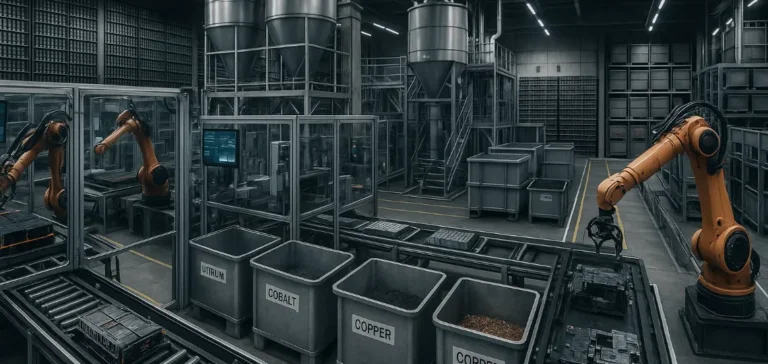The full enforcement of the new European battery regulation, scheduled for August 18, 2025, imposes rigorous new obligations on all affected European industrial stakeholders. Gradually introduced since February 2024, this regulation definitively replaces the previous directive (2006/66/EC) with the goal of establishing a comprehensive circular economy around batteries marketed in Europe. The sectors most directly impacted include electric vehicles, industrial batteries, and solutions for lightweight mobility, such as electric bicycles. Key requirements include significant improvements in recycling, greater transparency in supply chains, and specific traceability measures.
Strict standards on recycling and recycled materials
In concrete terms, the regulation mandates manufacturers to achieve minimum recycling rates for critical materials contained in batteries. By the end of 2027, recycling must reach 90% for cobalt, nickel, and copper, and 50% for lithium. Starting in 2028, manufacturers must also incorporate a minimum amount of recycled materials into all new batteries placed on the market, with this requirement progressively increasing until 2031. Additionally, from February 1, 2027, a mandatory digital passport will be implemented for automotive and industrial batteries with capacities exceeding 2 kWh. This passport must include detailed information about the chemical composition, origin of raw materials, and associated carbon footprint.
Furthermore, companies will be responsible for demonstrating compliance of their supply chains with international standards defined by the Organisation for Economic Co-operation and Development (OECD) and the United Nations (UN). From August 2025 onwards, these processes must be regularly audited by independent entities. Simultaneously, producers must organize free collection systems for used batteries, applicable to portable batteries and those used in light vehicles, under the Extended Producer Responsibility (EPR) principle.
Increased economic pressure on industries
This regulation forces European companies to thoroughly revise their sourcing strategies for critical raw materials such as lithium and cobalt, currently largely imported from markets outside Europe. The need to integrate more recycled materials may redefine existing commercial partnerships and stimulate the creation of new business models around industrial recycling. Compliance costs—including external audits, advanced recycling processes, and comprehensive traceability—are expected to significantly increase in the short term.
The European automotive industry must rapidly adapt its production processes to maintain competitiveness in the European market, one of the largest global markets for electric vehicles. Several major automotive manufacturers have already begun initiatives to secure their supplies of recycled materials, while simultaneously enhancing their own internal recycling capacities.
Industrial challenges and medium-term prospects
Facing these new regulatory constraints, European companies must quickly adjust their operational and commercial strategies. This development could permanently alter existing industrial balances and compel companies to reconsider their logistics and partnership frameworks. Decisions made by industries in the coming months will heavily influence their future positioning in the European battery market, now subject to a stricter and more demanding regulatory framework.






















